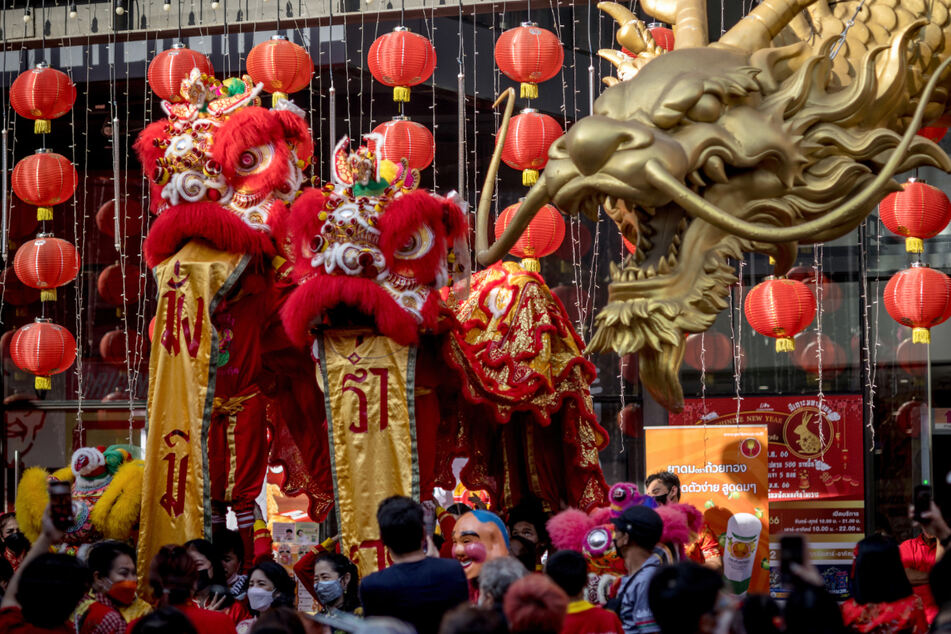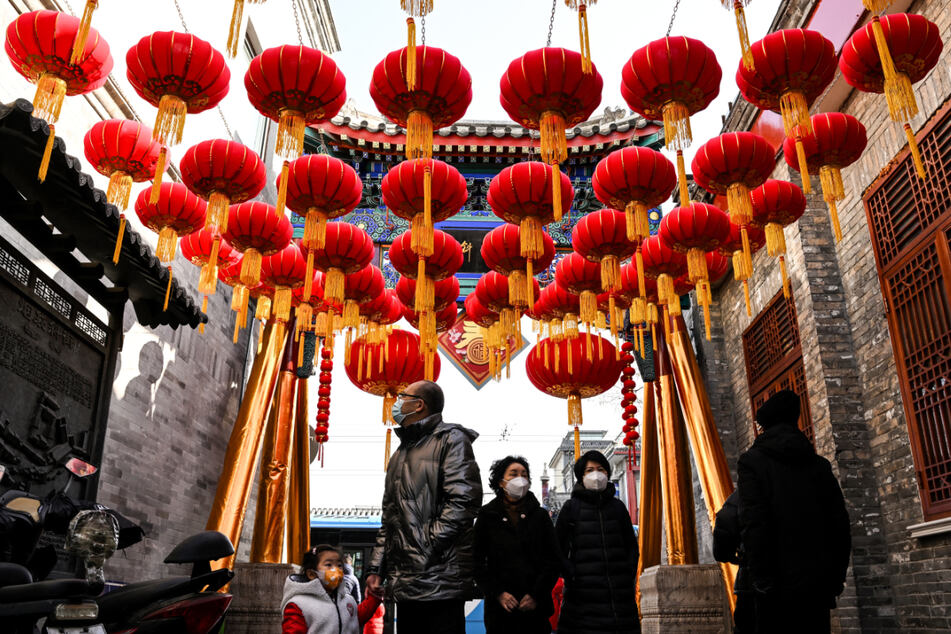Chinese New Year welcomes Year of the Rabbit as Covid-19 still looms
Beijing, China - Chinese around the world begun ushering in the New Year according to the traditional lunar calendar on Saturday evening, as the Year of the Tiger gives way to the Year of the Rabbit on Sunday. Yet in China itself, coronavirus still looms overhead.

In Chinese mythology, the rabbit - the fourth of the 12 signs of the zodiac - stands for harmony and longevity. In China, the New Year started at midnight local time on Saturday, and the 2023 festivities will continue in the country and worldwide from January 21 until February 20.
This is the first New Year celebration since the communist leadership in Beijing lifted the country's strict coronavirus measures, allowing millions of families to reunite in person this weekend for the first time in three years.
Most Chinese celebrate the start of the New Year over lavish dinners while watching the annual New Year's Gala on state television.
Authorities expect nearly 2 billion commuters to make trips during the total 40-day travel season, which is still about 70% of the pre-pandemic travel volume.
But despite the festive mood in the country, the New Year celebration is again overshadowed by the pandemic.
Chinese New Year celebrations are still damped by Covid-19 cases across China

But despite the festive mood in the country, the New Year celebration is again overshadowed by the pandemic. Anxiety and loss persists after the recent spike of Covid-19, while officials attempt to paint a brighter picture of the health situation.
While the conditions in major cities like Beijing and Shanghai have already largely returned to normal after December's swell in infections, the test of endurance in the provinces is yet to come.
Local health care there is only very rudimentary and modern hospitals are often several hours away by car. Rural areas are also home to mainly older population groups who have so far received inadequate vaccination protection: According to state media, 25% of people over 60 are still unvaccinated.
London-based research institute Airfinity predicts that the current coronavirus wave could peak in the coming week after the Lunar New Year celebrations, with up to 36,000 deaths per day. Such forecasts are in stark contrast to the official figures carried by state media, which say only about 60,000 people died from Covid-19 during the recent jump in cases.
On Friday, Chinese Vice Premier Sun Chunlan said the number of patients with serious Covid-19 infections in emergency departments was steadily decreasing. The 72-year-old stressed the need to strengthen medical staff at the community level and ensure the supply of medicines in rural areas. An official from the National Health Commission also claimed this week that the number of hospital patients in critical condition would now be well below the peak on January 5.
International experts remain skeptical, since the figures are hard to verify.
Meanwhile, the Chinese authorities recently launched a month-long censorship campaign to combat "dark emotions" and "rumors" about the Covid-19 situation on social media.
Cover photo: Collage: NOEL CELIS & JACK TAYLOR / AFP

